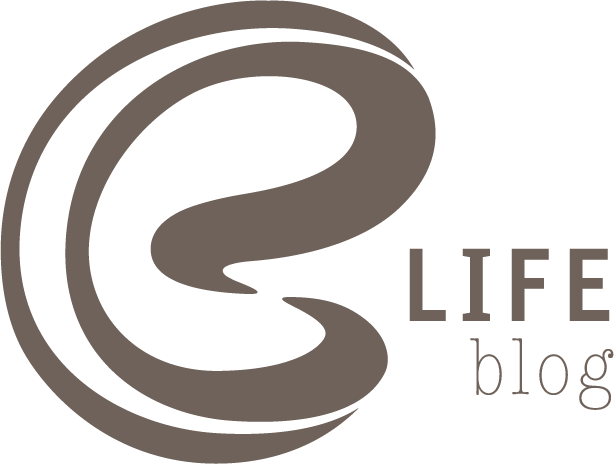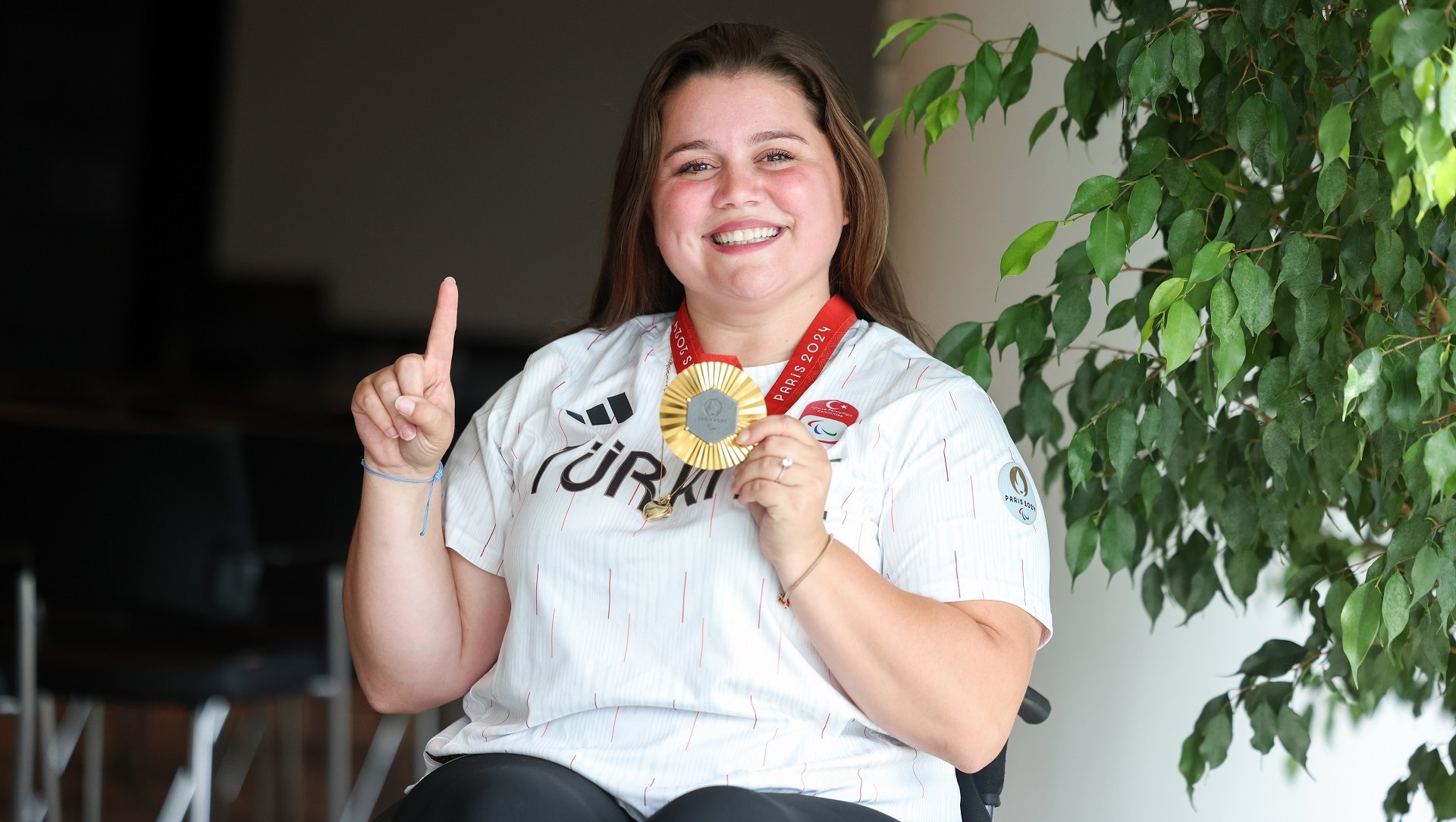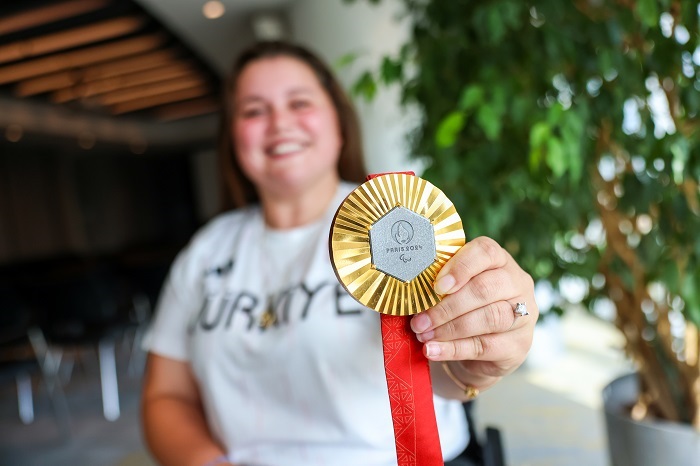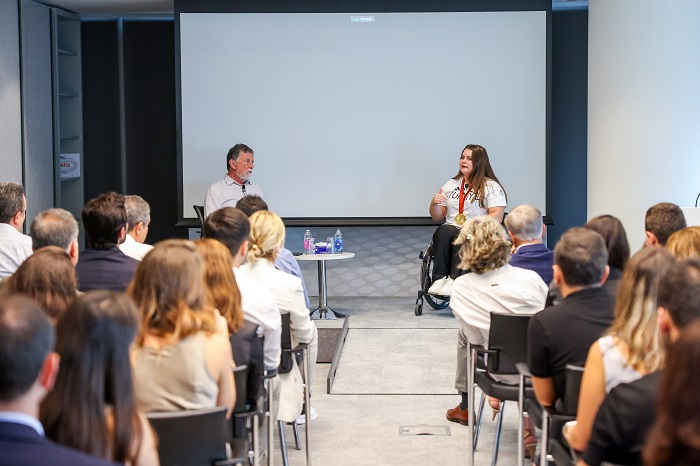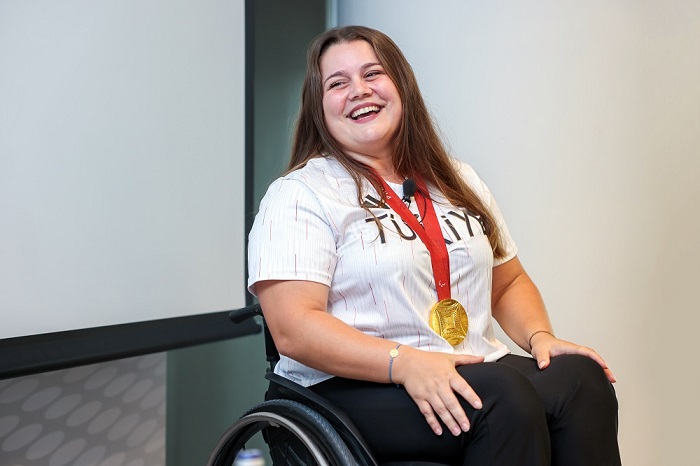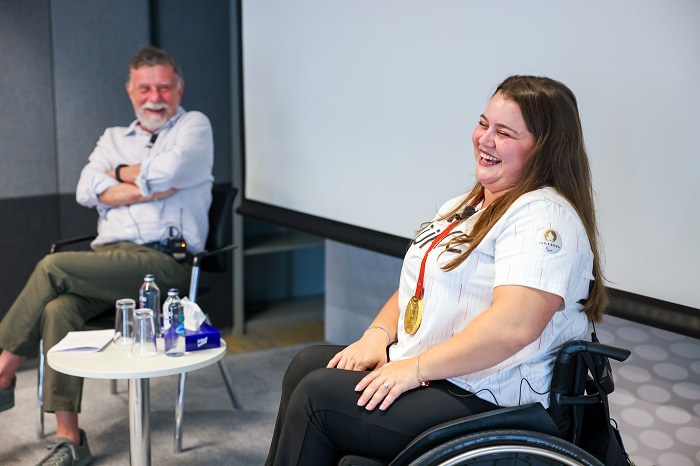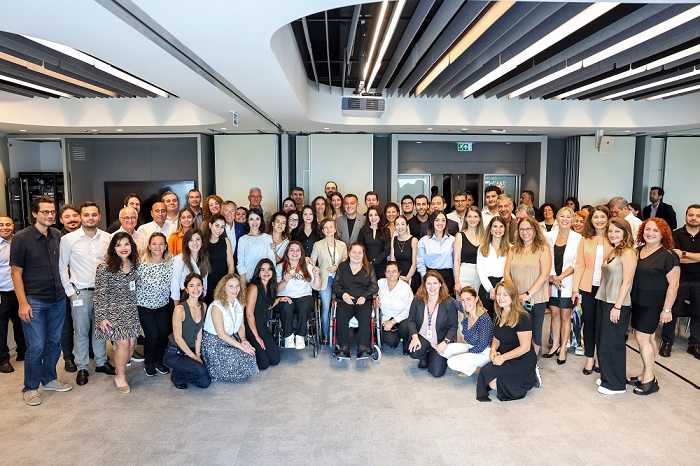Öznur Cüre Girdi is one of those people who don’t give up when misfortune turns life upside down. She managed to transform an unfortunate accident at the age of 17 into a new beginning for herself and her life ahead. She built her entire plan around “resilience”: Giving up, despairing, and losing have no place in her vocabulary. And happily, she always wins: people, matches, medals.
Already the winner of four European and two world championships, Öznur Cüre Girdi added a Paralympic Gold to her championship collection at the 2024 Paris Paralympic Games, where she made history by breaking the world record in the ranking round of the Compound Women Open and bringing Turkey its first gold medal in para archery in 16 years.
The victorious athlete in question is the daughter of Kasım Cüre, an Eczacıbaşı colleague who has been with the Group for more than 20 years. Eczacıbaşı has been by Öznur's side from the very beginning of her sports journey. Eczacıbaşı Holding Vice Chairperson Faruk Eczacıbaşı spoke with Öznur Cüre Girdi about her challenges and achievements at a special event in her honor attended by many Eczacıbaşı colleagues.
Faruk Eczacıbaşı: Öznur, the thing that struck me most while watching your competitions was your confidence. You looked extremely confident; you knew what to do. Determination, passion, candor, assertiveness... All these traits come together in you and are identified with your personality. How do you do this?
Öznur Cüre Girdi: I’m fully prepared before tournaments with physical and psychological training and breathing exercises. My intensive practice ranges from focusing on a single point to learning how to reduce my pulse rate from 180 to 110 in an instant. The practice has reached a point where I find myself wondering, “Am I breathing right now?” Imagine how focused I am. I can say that my self-confidence is based on the fact that I work hard and take every step with deliberation.
I’ve been undefeated for one-and-a-half years. During this period, I broke both the Paralympic and world record with 704 points. After the world record, all my competitors congratulated me, but I also sensed their underlying desire to beat me. In fact, my coaches tell me, “Öznur, your competitors’ goal is no longer winning the gold, it’s beating you. You’ll always be the winner because no matter how emotional you are, you get ice cold when you’re at the line.”
I enjoy being excited. Excitement makes me happy, not stressed; it gives me confidence, not fear. Let me explain with an example: Before starting the tournament, we compete to qualify. An Indian contestant and I were competing fiercely, and the record for the highest score was going back and forth between us. This is when I set a new world record. I was conscious and aware of that moment, the excitement. If I had shot even one arrow without being fully present, I might say something very different. I might say, “Öznur, you beat this person by chance.” But I didn't want to create this dilemma for myself. I was aware I was fully present and alert while competing and used this state of mind to break the record. When a person can take that step knowingly and willingly, with all their courage and without fear, it can carry them to the next level.
Faruk Eczacıbaşı: I’d like to change the subject slightly and talk about family. I know your family, and so I’m aware that your family has played an important role in your achievements this far. And there are your coaches, of course, they are also an important part of this family. This support mechanism has had a great impact as well, don't you think?
Öznur Cüre: Absolutely. My family went through very difficult times after the car accident. My mother and I had to learn how to use a wheelchair. My sister dropped out of school and took take care of me and my mother for many years. I was 17 when the accident happened, and my sister was 19. Imagine, she dedicated her life to us at that age. She raised and trained me like a baby. Then she entrusted me to my brother. For years, my brother supported me on the national team. My mother and father also gave me all their support. Then, of course, it was up to the team. Being cared for and receiving attention motivates people in life. This made me focus even more on my work. The training system at the Archery Federation is such that the team I work with wants to know how many hours I’ve slept, how many hours I’ve slept deeply, how much pain I have, whether I’m sick, whether I’m in a good mood, how happy I am, how sad I am. My team takes care of every support detail, and my job is just to shoot arrows. I shoot an arrow, I laugh; I shoot an arrow, I feel happy; I shoot an arrow, I sleep... That's why the great work of my support team, which includes doctors, nurses, psychologists, physiotherapists and coaches, is what actually brought us this medal. Of course, the level of quality attained by the Turkish Archery Federation is also very important. We’re proud that our federation has a very good system and position.
Faruk Eczacıbaşı: In the last Olympics, our Paralympic team was much more successful than our Olympic team. What do you think is the secret of our Paralympic success?
Öznur Cüre Girdi: I was an Olympic athlete even before my accident. The platforms are different, of course, but the effort is always the same. And the common goal of all of us is winning gold medals for our country. The Olympic team also gave everything they had to win those medals. The only difference, I think, is mental strength. So many questions occupy people's minds on the road to success... One of the most important is, “I’ve worked so hard, what if I fail?” Of course, I’m not an expert on the subject, but I can say this about Paralympic athletes: As people who’ve faced great difficulties, overcome all difficulties, who know and experience pain as well as happiness, we’re a little more daring. This might be the only difference. In 2028, I hope our Olympic athletes win many more medals.
Faruk Eczacıbaşı: I heard you have a family goal for 2028, can you tell us a little bit about that?
Öznur Cüre Girdi: In Tokyo in 2020, I saw a sport called boccia, which is a bit like billiards played on the floor. (Para boccia players use a ramp to send the ball rolling.) I immediately said to my mother, “We need to get you started in this sport.” My mother panicked, “How am I going to do it?” she asked. I replied, “What do you lose by trying?” and so she started the sport. I told my sister she would be a great assistant, and she became my mother's assistant. We had a vehicle problem, so we rented one of the vehicles with a special ramp for the disabled, which is only available at one car rental in Turkey. I told my mother: “If you want to make me happy, do this sport.” This way she would see herself that she could do it. My mother is a very talented woman. She went to training sessions with my sister five days a week and practiced for hours. And now my mother is the second best boccia player in Turkey. The process of forming the national team is getting started. I’ll go to Los Angeles 2028 with my mother, and we’ll drink coffee together in the Olympic Village. That’s our goal.
Question from the audience: How did you get into archery? How did that process work?
Öznur Cüre Girdi: I started with taekwondo. Taekwondo is a sport that doesn’t require much pulse control and is based on the principle of reaction to action. In archery, no one interferes with you physically. There’s a target and everything is in your hands.
My first Paralympic sport was sitting volleyball, which I started when I lived in Bolu. I was good at that sport, too; I even got an offer to join the national team. But then I had to come to Istanbul, and I couldn’t find sitting volleyball in Istanbul. This forced me to do another sport, and I thought a lot about what I could do. My friend Bahattin Hekimoğlu recommended archery to me. Archery equipment was quite expensive at the time, but the Archers Foundation provided free equipment to athletes. For a full year, I only trained with resistance bands at the Archers Foundation. At the end, I cried, “When will I shoot an arrow?” My brother and I had to travel in two vehicles. We had many difficult moments during this period, whether it was rain, or falling off a ramp.
All my life I've tried to guarantee my desired outcome. That’s why I'm always in favor of leading matches by 2-3 points. After the very first arrow I ever shot, both my coaches and I decided on archery. I scored 310 points that day, and my coach said, “You’re the highest scorer with this bow.” From that day on, archery entered my life fully.
Question from the audience: Young people especially tend to give up something they’re enthusiastic about when they encounter their first difficulty. How would you describe the motivation to “continue from where you left off and build on it” that we see so much in you?
Öznur Cüre Girdi: Experiences take place in our lives in two ways, good or bitter. But every experience, whether good or bitter, makes you grow. Bitter experiences can even carry you higher. Because when you look back, the first things you see are the lessons you learned from bitter experiences. I’m in a very good place constructed with bitter experiences. Hardship-prosperity, end-beginning, etc. I’ve experienced it all.
The World Championship in 2019 was my first tournament. I lost the first match, which is very natural when you think about it. But I cried for three days. My coaches said, “It was your first match, why are you making such a big deal out of it?” No, for me there was no such thing as losing anymore. Because I’d lost enough; it was time to win.
I think it’s necessary to take young people out of the world where they get everything they want, and introduce them to an environment where they face reality and challenges. Learning what you gain when you lose makes a person grow. It’s also important for every young person to play sports. Sports increase self-confidence and help young people overcome many phases of their life through the experience of losing and winning.
It's also very important to share success stories. The comments under my last published interview made me so happy. There were comments like, “I made my daughters watch you, and now I’ll start them in sports,” and “My life has changed.” Stories of this kind always feel like dreams, but no, they can happen in life.
Question from the audience: You are a very positive person. But nobody can be in the same frame of mind all the time. How do you maintain this positivity?
Öznur Cüre Girdi: Of course, I don't have a good day every day, I don't laugh every day. As the saying goes, “He who laughs a lot has a lot of problems.” I believe there’s that side of it, but I conceal all these things with laughter. Why shouldn't we laugh when we don't know what tomorrow will bring? My life changed in a minute when I was 17 years old. Now I say, “Why shouldn't I laugh, why shouldn't I enjoy this life when I don't even know my next minute?” I can have pessimistic moments and sleepless times during matches, but this is where my coaches and psychologists come into play. They make me feel I’m not alone, and that’s why I’m very happy.
I have a very big family behind me, a very big team. And I’m glad there are people who believe in me. Their smiling faces and interest make me happy. It’s thanks to them that I feel I can achieve some things in this life, so thank you very much.
I would like to shift the topic here to the Eczacıbaşı family: After our accident in 2014, I needed a walking device. We couldn't afford it at the time, and Eczacıbaşı gave me the walker as a gift. And Eczacıbaşı is still with me today. You are very special to me. You are like my family. I never looked at our relationship financially. I wanted to repay your love. That's why I wanted this medal so much. I always told my mother and father I didn't want to let you down. It meant a lot to me that you believed in me. I received this medal on behalf of my team, my family, Eczacıbaşı, and my country. You bought that walking device for a young girl, and that person has now come this far. I’m wearing this medal, but the real owners are the people in the background who support me. I’m glad they are there, and I hope they will always be there.
Faruk Eczacıbaşı: You’re at the top of the pyramid, you’ve made a name for yourself. And of course you have a support team, the unsung heroes. I congratulate them as well on your behalf.
